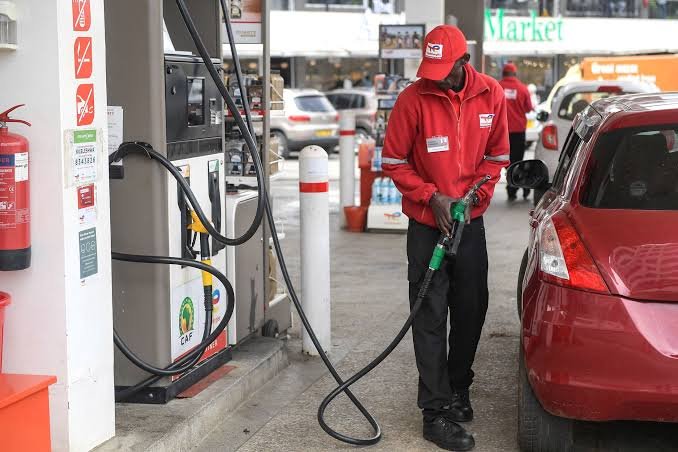As the festive season kicks off, the Energy and Petroleum Regulatory Authority (EPRA) has eased the financial burden on Kenyans as it announced a decrease in fuel prices for the period between 15th December and 14th January 2025.
According to EPRA, the new prices have seen petrol reduce by Sh4.37 per litre to Sh176.29, diesel by Sh3 to Sh165.06, and kerosene by Sh3 to Sh148.39, marking the lowest levels since April last year. However, despite the reduction, tax and levies have once again made up a majority of the retail price of petrol per litre for the period.
Taxes and levies account for 45.66% (Sh80.50/litre) of the Sh176.29, despite the cost of importing the petroleum standing at Sh79.39 (45.03%). This shift goes back on the change that was recorded last period between 15 November and 14 December 2024, whereby the landed cost accounted for 46.20% as compared to taxes and levies 44.96% of the Sh180.66 retail price.
Excise duty, road maintenance levy, and VAT, which stand at Sh21.95/litre, Sh25 and Sh24.32 respectively in the December to January period, are the key contributors that push the tax component beyond the basic import cost. However, as taxes and levies account for a large share of the retail petrol price, the case is different for diesel and kerosene whereby the landed cost holds the largest share.
With many Kenyans expected to travel, the government is looking to benefit from the surge in fuel consumption. As petrol stations welcome one of their busiest and most profitable periods, the current administration has tapped in, in order to boost its revenue.
This move demonstrates the government’s hand in controlling pricing through fiscal policies rather than relying solely on global market shifts. With the national coffers no longer what they were, expenditure on the rise and the country on the brink of debt distress, Kenyans will remain at the mercy of the government, which seems to ever increase the burden on its citizens.


